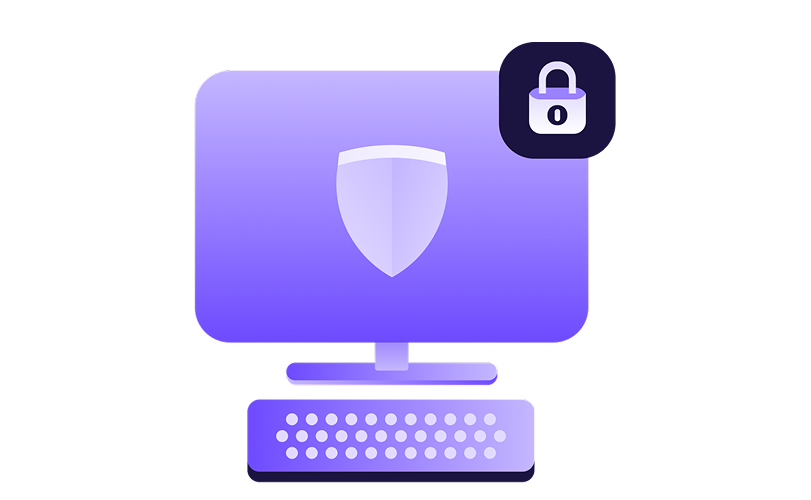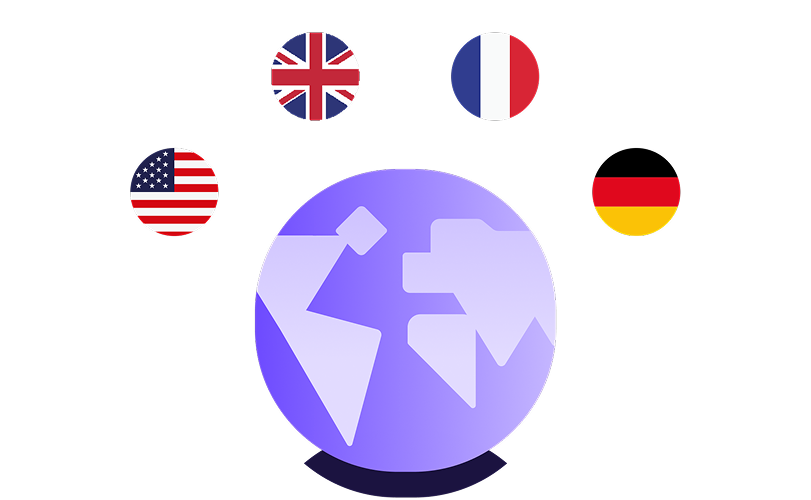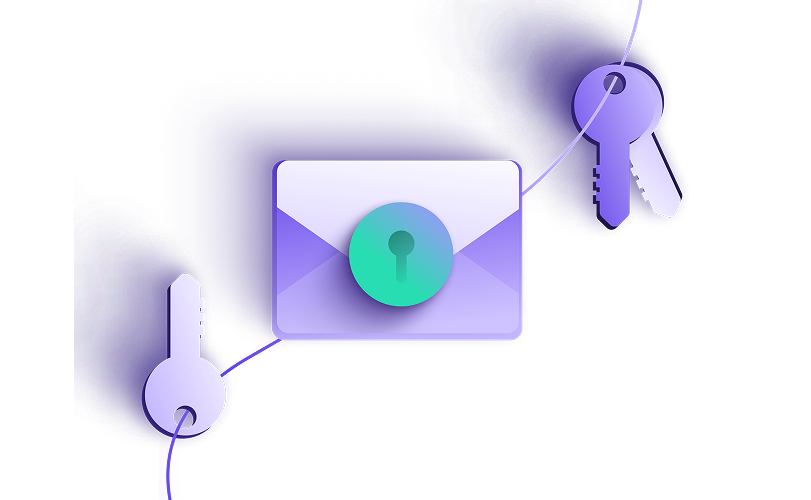Was ist Null-Zugriff-Verschlüsselung?
Die Null-Zugriff-Verschlüsselung schützt deine in der Cloud gespeicherten Daten so, dass der Dienstanbieter und Dritte nicht auf deren Inhalte zugreifen können.
Finde heraus, wie es funktioniert, wie es sich von der Ende-zu-Ende-Verschlüsselung unterscheidet und wie es deine Daten vor Werbetreibenden, Datenhändlern, KI-Systemen, unbefugtem Zugriff, Datenlecks oder Regierungsanfragen schützen kann.
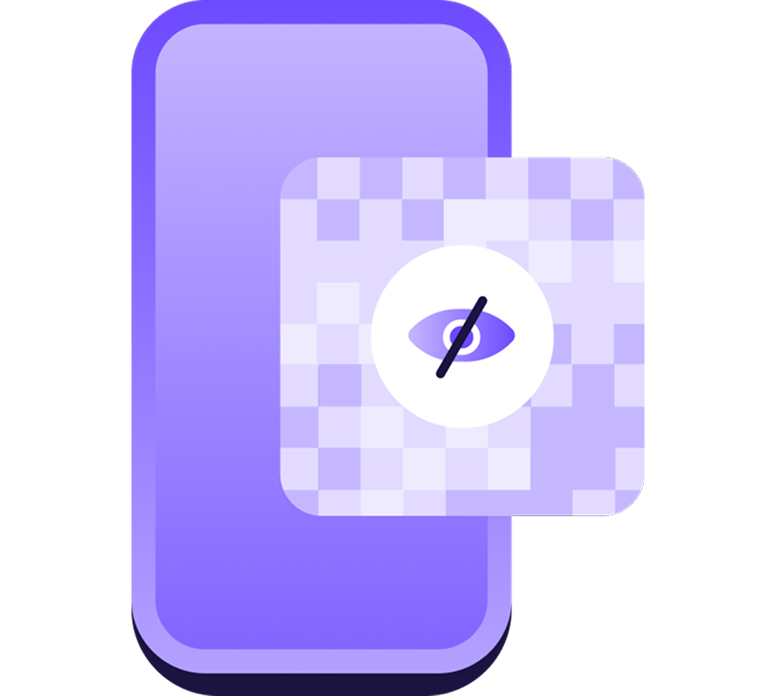
Wie funktioniert die Null-Zugriff-Verschlüsselung?
Die Null-Zugriff-Verschlüsselung beruht auf asymmetrischer (Public-Key) Kryptografie, bei der Daten mit deinem öffentlichen Schlüssel verschlüsselt werden und nur mit deinem privaten Schlüssel entschlüsselt werden können, den nur du kontrollierst.
Da der Server deinen privaten Schlüssel nicht hat, kann der Dienstanbieter deine gespeicherten Daten nicht lesen. Wenn du darauf zugreifst, wird der verschlüsselte Inhalt abgerufen und lokal auf deinem Gerät entschlüsselt.
Zum Beispiel nutzt Lumo, unser privater KI-Assistent(neues Fenster), die Null-Zugriff-Verschlüsselung: Deine Unterhaltungen werden auf deinem Gerät verschlüsselt, bevor sie auf den Servern von Proton gespeichert werden, und nur du kannst sie entschlüsseln. Proton speichert die verschlüsselten Daten, kann aber nicht darauf zugreifen oder sie wiederherstellen.
Was ist der Unterschied zwischen Null-Zugriff-Verschlüsselung und Ende-zu-Ende-Verschlüsselung?
Die Null-Zugriff-Verschlüsselung schützt Daten, nachdem sie den Dienst erreicht haben, indem sie sie so verschlüsselt, dass nur der Benutzer sie entschlüsseln kann, auch wenn der Dienst vor der Verschlüsselung kurzzeitig auf die Daten zugreifen kann.
Ende-zu-Ende-Verschlüsselung (E2EE) schützt Daten, bevor sie den Dienst überhaupt erreichen, indem sie sie auf dem Gerät des Absenders verschlüsselt und so sicherstellt, dass nur der Absender und der beabsichtigte Empfänger sie lesen können.
Während beide den Zugriff durch Dritte verhindern und vor Datenlecks schützen, bietet E2EE stärkere Privatsphäre-Garantien, da der Dienstanbieter die unverschlüsselten Daten zu keinem Zeitpunkt sieht.
Wenn zum Beispiel eine E-Mail von Gmail an Proton Mail gesendet wird, können die Server von Proton die Nachricht kurzzeitig lesen, da Gmail keine Ende-zu-Ende-Verschlüsselung verwendet. Proton verschlüsselt die E-Mail dann mit dem öffentlichen Schlüssel des Empfängers, woraufhin nur der Empfänger sie entschlüsseln kann und Proton keinen Zugriff mehr hat.
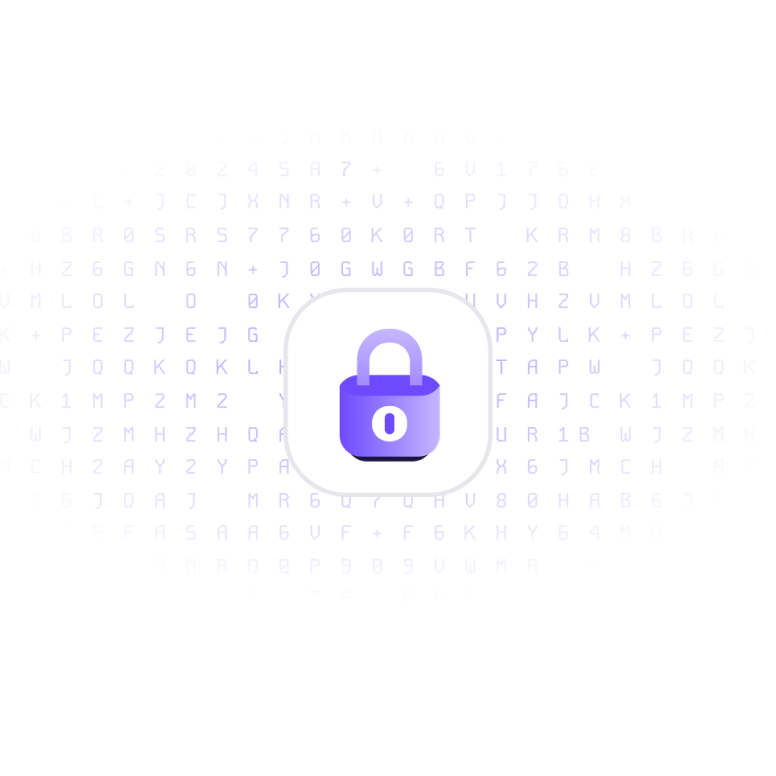
Warum brauchst du Null-Zugriff-Verschlüsselung?
Die meisten Big-Tech-Unternehmen, wie Google und Yahoo, verwenden keine Null-Zugriff-Verschlüsselung. Das bedeutet, dass sie deine Nachrichten, Dateien und andere Daten lesen können, sobald sie auf ihren Servern gespeichert sind. So kann die Null-Zugriff-Verschlüsselung deine Daten schützen:
Du bist vor Werbung und Profiling geschützt
Big-Tech-Unternehmen unterstützen ihre werbebasierten Geschäftsmodelle, indem sie deine Informationen an Datenhändler und Vermarkter verkaufen, die detaillierte Profile deiner Online-Gewohnheiten erstellen. Mit der Null-Zugriff-Verschlüsselung kann der Dienstanbieter deine Daten weder sehen, noch verarbeiten oder mit Dritten teilen, da der Zugriff auf deine Daten technisch unmöglich ist. Du behältst jederzeit die Kontrolle über deine persönlichen Informationen.
Datenlecks werden deine Daten nicht offenlegen
Sollten die Server des Dienstanbieters jemals von einem Datenleck betroffen sein, stellt die Null-Zugriff-Verschlüsselung sicher, dass gestohlene Datenbanken nichts weiter als unlesbarer Chiffretext sind. Selbst wenn Angreifer vollen Zugriff auf Server oder Sicherungen erhalten, bleiben deine Daten geschützt.
Du kannst nicht gezwungen werden, deine Privatsphäre aufzugeben
Im Falle von behördlichen oder rechtlichen Anfragen kann ein Dienst, der standardmäßig Null-Zugriff-Verschlüsselung bietet (wie Proton), deine Privatsphäre schützen, da er gar keine Daten hat, die er herausgeben könnte. Dieser Schutz gilt unabhängig von aktuellen Gesetzen, zukünftigen rechtlichen Änderungen oder dem politischen Klima.
Übernimm die Kontrolle über deine Daten
Proton wurde entwickelt, um deine Daten von Anfang an zu schützen. Mit Null-Zugriff-Verschlüsselung, Open-Source-Apps und unabhängigen Prüfungen gehören deine Informationen weiterhin dir.
In Proton Mail gespeicherte E-Mails sind durch Null-Zugriff-Verschlüsselung geschützt, sodass wir deine Nachrichteninhalte oder Anhänge nicht lesen können, sobald sie verschlüsselt sind.
Wenn Nachrichten bei der Übertragung nicht Ende-zu-Ende-verschlüsselt sind, werden sie nach der Bestätigung verschlüsselt, sodass nur du darauf zugreifen kannst.
Kalender-Termine, die du speicherst, sind durch Null-Zugriff-Verschlüsselung geschützt, einschließlich Titeln, Beschreibungen, Standorten und Gästelisten.
Selbst wenn du deinen Zeitplan teilst oder eine Einladung sendest, kann niemand sonst – nicht einmal Proton – sehen, für wen sie bestimmt ist.
Passwörter, Benutzernamen, Webadressen, Notizen, Kreditkarten, Identitätsdetails und andere Daten, die du speicherst, sind durch Null-Zugriff-Verschlüsselung geschützt.
Wenn du Tresore teilst, sind sowohl die Inhalte als auch die geteilten Links geschützt, sodass nur die Personen, die du einlädst, sehen können, was sich darin befindet
Was du im Cloud-Speicher speicherst und teilst, ist durch Null-Zugriff-Verschlüsselung geschützt, einschließlich Dateiinhalten, Dateinamen, Ordnernamen, Vorschaubildern und geteilten Links.
Nur du und die Personen, mit denen du teilen möchtest, können auf deine Dateien zugreifen – nicht einmal Proton kann sie sehen.
Mehr über Verschlüsselung erfahren
